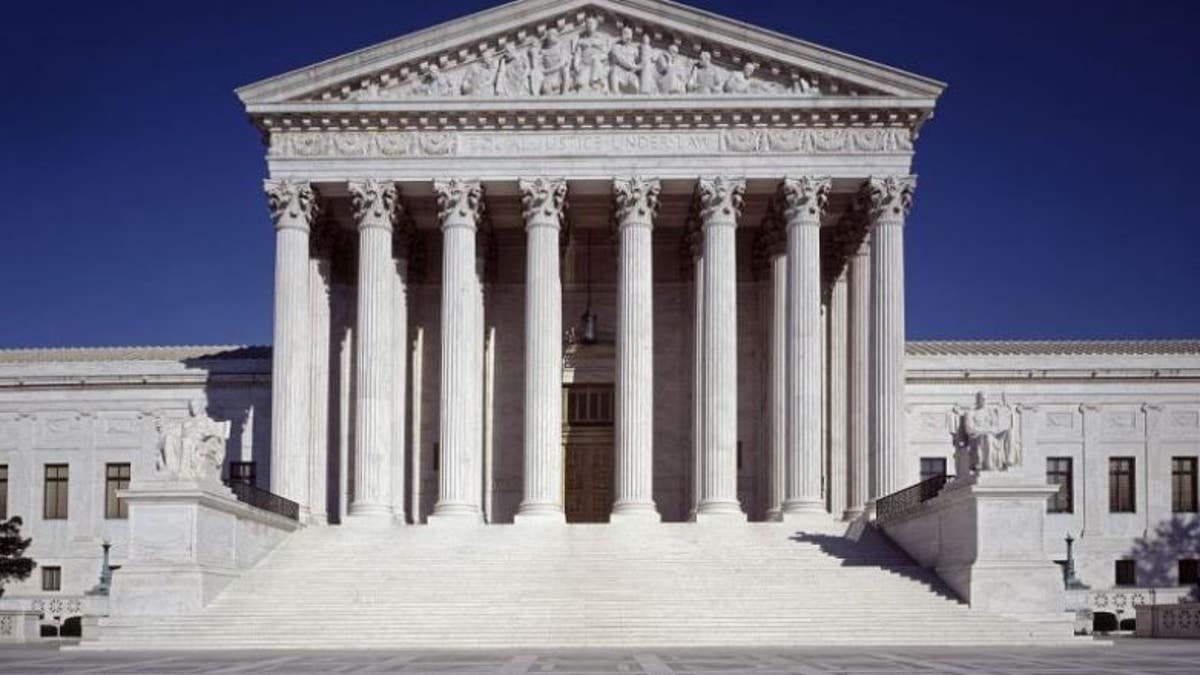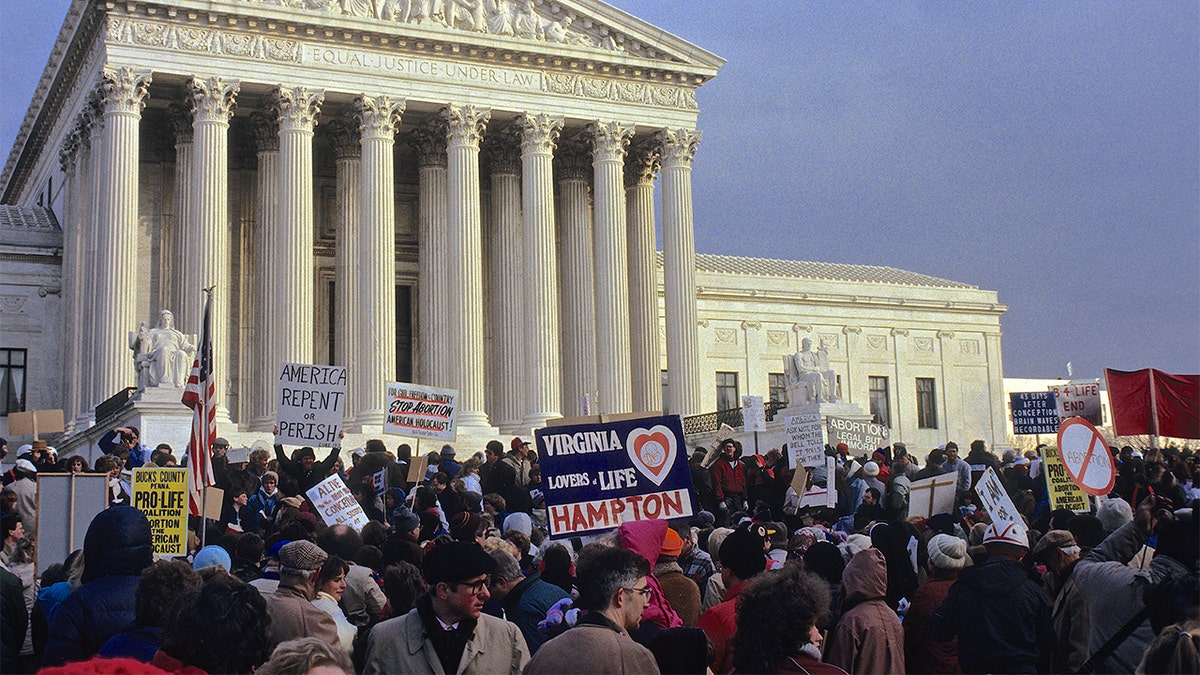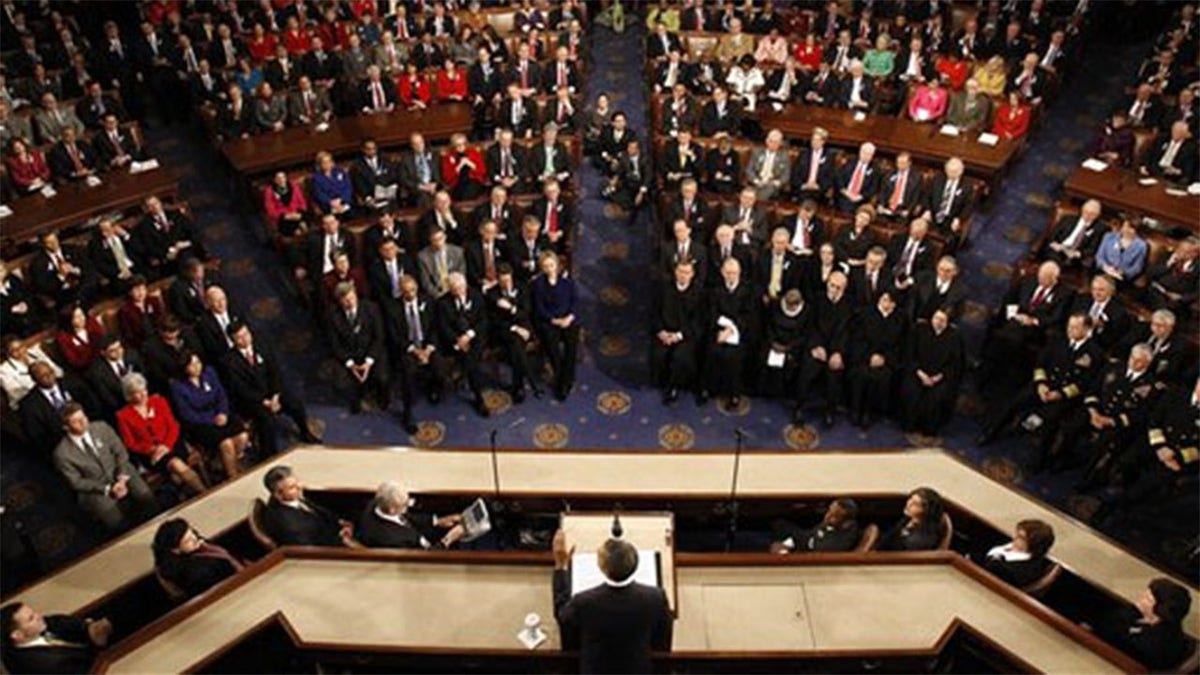7 historic Supreme Court decisions
Here are some of the most pivotal and controversal rulings issued by the U.S. Supreme Court.
The U.S. Supreme Court has issued rulings on some of the most important issues facing Americans.
Some have been widely accepted while others continue to polarize the public. Here is a list of seven historic Supreme Court decisions that have had long-lasting implications, as determined by Fox News after analyzing Library of Congress data.
Brown v. Board of Education, 1954 (9-0 decision)
Brown v. the Board of Education of Topeka, Kansas, was historic because it outlawed the segregation of children in public schools. The justices found the practice was unconstitutional even if the schools were considered equal.
The decision ushered in the civil rights movement that eventually abolished segregation in all public spaces in the Jim Crow-era south.

The exterior of the Supreme Court building in Washington D.C. The high court has ruled on many cases that have influenced policy on all levels of government. (Library of Congress)
New York Times v. Sullivan, 1964 (9-0 decision)
The case came about after The New York Times published a full-page ad in 1960 paid for by supporters of Martin Luther King Jr. that criticized police in Montgomery, Ala. The ad said the department had unleashed “an unprecedented wave of terror" on peaceful demonstrators.
It also contained several factual errors such as the number of times King had been arrested.
L.B. Sullivan, one of three people in charge of police in Montgomery, sued the newspaper for libel, even though he was not mentioned in the ad. An Alabama court awarded him $500,000 in damages. The Supreme Court ruled in favor of The Times, saying a public official must prove the newspaper acted with "actual malice."
The Times argued that the free press would be limited if it had to check the accuracy of every single criticism against a public official.
Miranda v. Arizona, 1966 (5-4 decision)
The decision established that criminal suspects must be advised of their rights. The ruling ushered in a system-wide change to law enforcement by implementing Miranda rights notification, now a familiar part of police procedure.
Loving v. Virginia, 1967 (9-0 decision)
The ruling struck down laws prohibiting interracial marriage. The case involved Richard Loving, a white man, and his African-American wife, Mildred. The couple was married in Washington, D.C., and sentenced to a year in prison when they returned to Virginia.
They were accused of defying Virginia's Racial Integrity Act of 1924 that outlawed marriages between white and black people. A judge agreed to suspend the sentence if the couple agreed to leave the state and not return for at least 25 years.
Several movies and songs have been made in response to the ruling.
Roe v. Wade, 1973 (7-2 decision)
No other SCOTUS decision has been more polarizing than Roe v. Wade. The ruling giving women the right to an abortion is still argued decades later and is often one of the issues presidents consider when nominating judges to the high court.
Several conservative-led states have enacted tough abortion restrictions in recent years and many anti-abortion groups have pushed for the court to overturn the decision.

The annual March for Life protest in front of the US Supreme Court in 1991. The March for Life is an annual pro-life rally protesting abortion, held in Washington, D.C., on or around the anniversary of the United States Supreme Court's decision legalizing abortion in the case Roe v. Wade. (Photo by Mark Reinstein/Corbis via Getty Images)
Lawrence v. Texas, 2003 (6-3 decision)
The court invalidated laws prohibiting sodomy between consenting adults after a gay Texas couple was arrested after engaging in a sexual act. They were initially convicted of a state law forbidding two people of the same sex to engage in certain sexual conduct.
CLICK HERE TO GET THE FOX NEWS APP
Citizens United v. Federal Election Commission, 2010 (5-4 decision)
The Citizen's United case is still being debated and is mostly shunned throughout the political world. The controversial decision allows corporations and unions to spend unlimited amounts in elections, possibly giving them vast influence over public policy.
The origin of the case begins with Citizens United’s ability to produce a film and run advertisements for a film critical of Hillary Clinton.

President Barack Obama addresses Congress and the Supreme Court during his 2012 State of the Union speech.
Former President Barack Obama criticized the court during one of his State of the Union speeches in response to the ruling and many have expressed wishes that it be overturned.














































